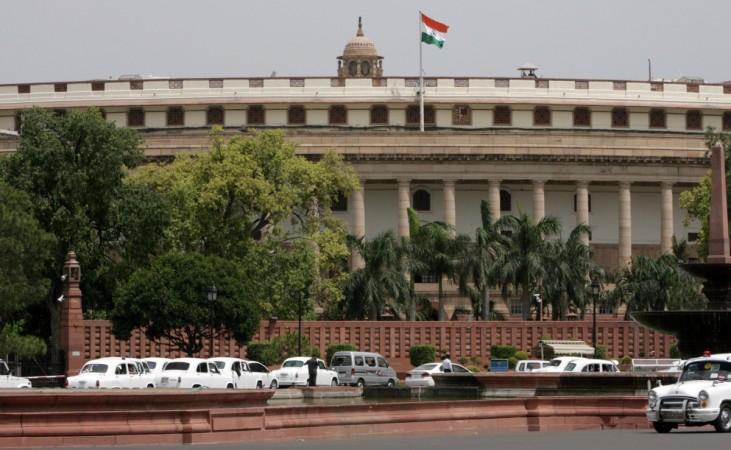
After an almost seven-hour debate, the Rajya Sabha passed The Constitution (122nd Amendment) Bill (the Goods and Services Tax Bill, or GST) on Wednesday by 197 votes in favour and none against. The AIADMK walked out in protest before the voting.
The passage of the Bill paved the way for the initiation of next steps to ensure the implementation of the landmark indirect tax legislation. The subsequent set of legislation (CGST Bill and IGST Bill) will be introduced in November.
Before voting, Finance Minister Arun Jaitley, in his speech after all members had spoken, expressed satisfaction at the response. "From the speeches by members, it is fairly clear that barring one, all other parties have spoken in favour of the Bill," he said.
On GST rate
Refuting the claim that the chief economic adviser Arvind Subramanian had committed a standard rate of 18 percent (as was referred to by most members), Jaitley said Subramanian had suggested a band of 17 to 19 percent.
He said the GST Council would make the recommendations on what the standard rate should be, since the current legislation is only an enabling law. "I agree that the rate should be reasonable," he said, adding that the rates would come down as compliance goes up.
On concerns of Mumbai
On octroi, Jaitley said the state GST would expand and offset losses to Mumbai. He denied the AIADMK's charge that the Bill goes against the spirit of federalism.
Read: Shiv Sena MP Sanjay Raut demands special status for Mumbai, flays Modi Govt
P Chidambaram says Bill indicates "clumsy drafting"
Earlier, Jaitley introduced the Bill in the Rajya Sabha at 2 p.m. The first speaker was former finance minister and senior Congress leader P Chidambaram. While declaring his party's support to the GST Bill, he insisted that the government should fix the standard rate, also called the revenue neutral rate, at 18 percent. Chidambaram also said that some of the clauses of the Bill were not proper, saying it was a case of "clumsy drafting".
Anand Sharma of the Congress
Chidambaram's colleague Anand Sharma, who was the penultimate speaker, reiterated the same while asking the government to introduce the enabling Bills as Finance Bills so that they are passed after a proper debate in both houses of Parliament.
While most of the parties supported the Bill, the AIADMK opposed the legislation, on expected lines. Most of the members voiced their concerns on revenue sharing, the rate that would be fixed, its impact on inflation and compensation to states for losing out on revenues.
Subsequent legislations to implement GST Bill
The next steps in the GST Bill involve ratification of the Amendment Bill by at least 15 states and the passage of subsequent legislation.
"Once the Parliament passes the GST Bill, 50 percent of the States shall have to ratify it followed by the assent of the President. The GST Council can be constituted only after the Presidential assent. Meanwhile, the Empowered Committee would need to develop consensus on complex matters such as tax rates, exemptions, threshold limits, dual administration etc. Once such consensus is arrived at and blessed by the GST council, various GST legislations such as the Central GST law, Integrated GST law and 29 State GST laws including allied rules and notifications would need to be passed by the relevant legislative bodies," Rajeev Dimri, Leader, Indirect Tax, BMR & Associates LLP, said in a note on Wednesday.
"GST is likely to subsume some major Central and State levies such as duties of excise, additional duties of customs (applied in lieu of excise and local taxes), service tax, value added tax, central sales tax, entry tax, octroi and luxury tax. These taxes in aggregate constitute typically 25 percent to 40 percent of the price of products with certain categories being taxed at lower rates. There could be a reduction of tax incidence for several product categories if the standard GST rate is notified in the range of 18 percent to 20 percent. Headline tax rate on services is likely to increase as these are currently taxed at 15 percent even though expansion of the input credit base should partially offset the increase," he added.









